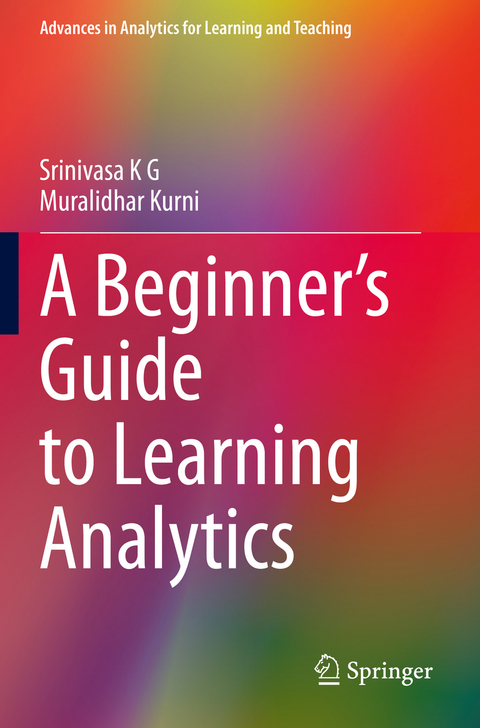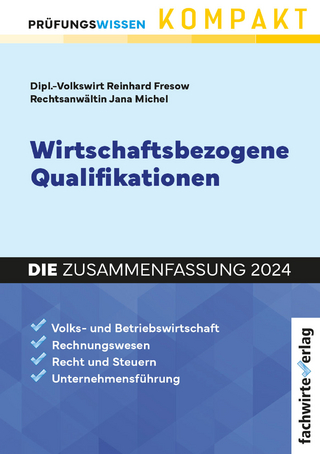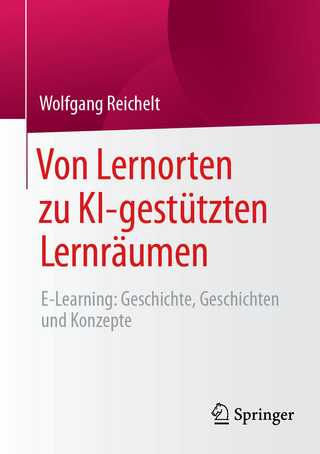
A Beginner’s Guide to Learning Analytics
Springer International Publishing (Verlag)
978-3-030-70260-1 (ISBN)
This book A Beginner's Guide to Learning Analytics is designed to meet modern educational trends' needs. It is addressed to readers who have no prior knowledge of learning analytics and functions as an introductory text to learning analytics for those who want to do more with evaluation/assessment in their organizations. The book is useful to all who need to evaluate their learning and teaching strategies. It aims to bring greater efficiency and deeper engagement to individual students, learning communities, and educators.
Covered here are the key concepts linked to learning analytics for researchers and practitioners interested in learning analytics. This book helps those who want to apply analytics to learning and development programs and helps educational institutions to identify learners who require support and provide a more personalized learning experience. Like chapters show diverse uses of learning analytics to enhance student and faculty performance. It presents a coherent framework for the effective translation of learning analytics research for educational practice to its practical application in different educational domains. This book provides educators and researchers with the tools and frameworks to effectively make sense of and use data and analytics in their everyday practice. This book will be a valuable addition to researchers' bookshelves.
Dr. Srinivasa K G is currently working as a Professor in National Institute of Technical Teachers Training and Research, Chandigarh. He received his Ph.D. in Computer Science and Engineering from Bangalore University in 2007. He is the recipient of All India Council for Technical Education - Career Award for Young Teachers, Indian Society of Technical Education - ISGITS National Award for Best Research Work Done by Young Teachers, Institution of Engineers (India) - IEI Young Engineer Award in Computer Engineering, Rajarambapu Patil National Award for Promising Engineering Teacher Award from ISTE - 2012, IMS Singapore - Visiting Scientist Fellowship Award. He has published more than 150 research papers in International Conferences and Journals. He has visited many Universities abroad as a visiting researcher - He has visited University of Oklahoma, USA, Iowa State University, USA, Hong Kong University, Korean University, National University of Singapore, University of British Columbia, Canada are his few prominent visits. He has authored eight text books with prestigious publishers like TMH, Springer, Oxford, etc. He has edited many research monographs in the areas of Cyber Physical Systems, Energy Aware Computing and Artificial Intelligence with prestigious International publishers. He has been awarded BOYSCAST Fellowship by DST, for conducting collaborative. Research with Clouds Laboratory in University of Melbourne in the area of Cloud Computing. He is the principal Investigator for many funded projects from AICTE, UGC, DRDO, and DST. He is the senior member of IEEE and ACM. His research areas include Data Mining, Machine Learning and Cloud Computing. His recent research areas include Innovative Teaching Practices in Engineering Education, pedagogy; outcomes based education, and teaching philosophy. Mr. Muralidhar Kurni is an Independent Consultant for Pedagogy Refinement, EduRefine, India. He is currently working as an Assistant Professor in the Department of Computer Science & Engineering at Anantha Lakshmi Institute of Technology & Sciences, Anantapuramu, Andhra Pradesh, India. Previously he worked as Head, Department of Computer Applications, Sri Sai College of Technology & Management, Kadapa, Andhra Pradesh, India. Mr. Muralidhar Kurni has received his M.Sc. in Computer Science from S. K. University and M.Tech. in Computer Science & Engineering from JNTUA, Ananthapuram, Andhra Pradesh, India. He has more than 19 years of teaching experience. He is an IUCEE & IGIP certified International Engineering Educator & researcher. He has several scholarly publications to his credit. He presented about 30 papers at various national and international conferences and journals. Four of his papers received the best paper awards. Two of them are the IEEE Conference Best Paper awards. He has been a reviewer for various International Conferences & Journals, including SCIE & Scopus indexed Journals. He served as a Guest Editor for the Special Issue on "Security, Privacy, and Trust in IoT" of IJWNBT Journal, IGI Global, Volume 8, Issue 2, July-December 2019. His research interests include Learning Analytics, Learning Strategies, Digital Pedagogy, Design Thinking, Pedagogy refinement & Engineering Education Research.
Chapter 1.- Introduction to Learning Analytics.- 1.1. Introduction to Learning Analytics.- 1.2. Learning analytics: A new and rapidly developing field.- 1.3. Benefits and Challenges of learning analytics.- 1.4. Ethical Concerns with Learning Analytics.- 1.5. Use of Learning analytics.- 1.6. Conclusion.- 1.7. Review Questions.- Chapter 2Educational Data Mining & Learning Analytics.- 2.1. Introduction.- 2.2. Educational Data Mining (EDM).- 2.3. Educational Data Mining & Learning analytics.- 2.4. Educational Data Mining & Learning analytics Applications.- 2.5. Conclusion.- 2.6. Review Questions.- Chapter 3.-Preparing for Learning Analytics.- 3.1. Introduction.- 3.2. Role of Psychology in Learning analytics.- 3.3. Architecting the learning analytics environment.- 3.4. Major Barriers for adopting Learning Analytics.-3.5. Case Studies.- 3.6. Conclusion.- 3.7. Review Questions.- Chapter 4. Data requirements for Learning analytics.- 4.1. Introduction.- 4.2. Types of data used for Learning Analytics.- 4.3. Data Models used to represent usage data for Learning analytics.- 4.4. Data Privacy maintenance in Learning analytics.- 4.5. Case Studies.- 4.6. Conclusion.- 4.7. Review Questions.- Chapter 5. Tools for Learning Analytics.- 5.1. Introduction.- 5.2. Popular Learning Analytics Tools.- 5.3. Choosing a Tool.- 5.4. Strategies to Successfully Deploy a Tool.- 5.5. Exploring Learning Analytics Tools.- 5.6. Case Studies.- 5.7. Developing a Learning analytics Tool.- 5.8. Conclusion.- 5.9. Review Questions.-Chapter 6.- Other Technology Approaches to Learning Analytics.- 6.1. Introduction.- 6.2. Big Data & Learning Analytics.- 6.3. Data Science & Learning Analytics.- 6.4. AI & Learning Analytics.- 6.5. Machine Learning & Learning Analytics.- 6.6. Deep Learning & Learning Analytics.- 6.7. Case Studies.- 6.8. Conclusion.- 6.9. Review Questions.- Chapter 7.- Learning Analytics in Massive Open Online Courses.- 7.1 Introduction to MOOCs.- 7.2. From MOOCs to Learning analytics.- 7.3. Integrating Learning analytics with MOOCs.- 7.4. Benefits of applying Learning Analytics in MOOCs.- 7.5. Major Concerns of implementing Learning Analytics in MOOCs.- 7.6. Limitation of Applying Learning Analytics in MOOCs.- 7.7. Tools that support Leaning analytics in MOOCs.- 7.8. Case Studies.- 7.9. Conclusion.- 7.10. Review Questions.- Chapter 8.- The Pedagogical perspective of Learning Analytics.- 8.1. Introduction to Pedagogy.- 8.2. Learning Analytics based Pedagogical Framework.- 8.3. Pedagogical Interventions.- 8.4. Learning Analytics based Pedagogical Models.- 8.5. Case studies.- 8.6. Conclusion.- 8.7. Review Questions.- Chapter 9. Moving Forward.- 9.1. Self-Learning and Learning analytics.- 9.2. Lifelong learning and learning analytics.- 9.3. Present and future trend of learning analytics in the world.- 9.4. Measuring 21st Century Skills using Learning analytics.- 9.5. Moving Forward.- 9.6. Smart Learning analytics.- 9.7. Case Studies.- 9.8. Conclusion.- 9.9. Review Questions.-Chapter 10.- Case Studies.- 10.1. Recommender systems using learning analytics.- 10.2. Learning Analytics in Higher Education.- 10.3. Other Evidences on the use of Learning Analytics.- Chapter 11. Problems.
"This book explores how to bridge these gaps in education, teaching, and learning, with the new knowledge and technology we have today. ... Each chapter includes one or more case studies ... ." (Ernest Hughes, Computing Reviews, February 1, 2022)
“This book explores how to bridge these gaps in education, teaching, and learning, with the new knowledge and technology we have today. ... Each chapter includes one or more case studies ... .” (Ernest Hughes, Computing Reviews, February 1, 2022)
| Erscheinungsdatum | 21.04.2022 |
|---|---|
| Reihe/Serie | Advances in Analytics for Learning and Teaching |
| Zusatzinfo | XIII, 326 p. 40 illus., 38 illus. in color. |
| Verlagsort | Cham |
| Sprache | englisch |
| Maße | 155 x 235 mm |
| Gewicht | 522 g |
| Themenwelt | Schulbuch / Wörterbuch ► Unterrichtsvorbereitung ► Unterrichts-Handreichungen |
| Sozialwissenschaften ► Pädagogik ► Schulpädagogik / Grundschule | |
| Schlagworte | educational data mining • Learning Analytics • Learning Analytics in Higher Education • Learning Analytics in MOOCs • Learning Analytics Tools • Life Long Learning • Recommender Systems Using Learning Analytics • Self-learning • Smart Learning Analytics • Technology Approaches to Learning Analytics |
| ISBN-10 | 3-030-70260-X / 303070260X |
| ISBN-13 | 978-3-030-70260-1 / 9783030702601 |
| Zustand | Neuware |
| Haben Sie eine Frage zum Produkt? |
aus dem Bereich


